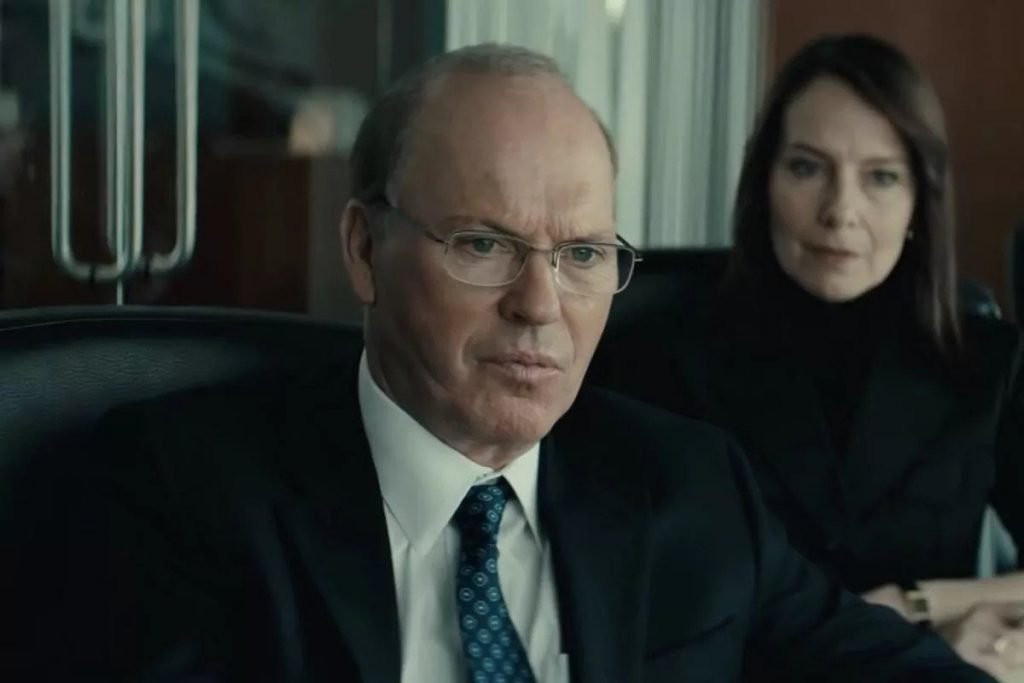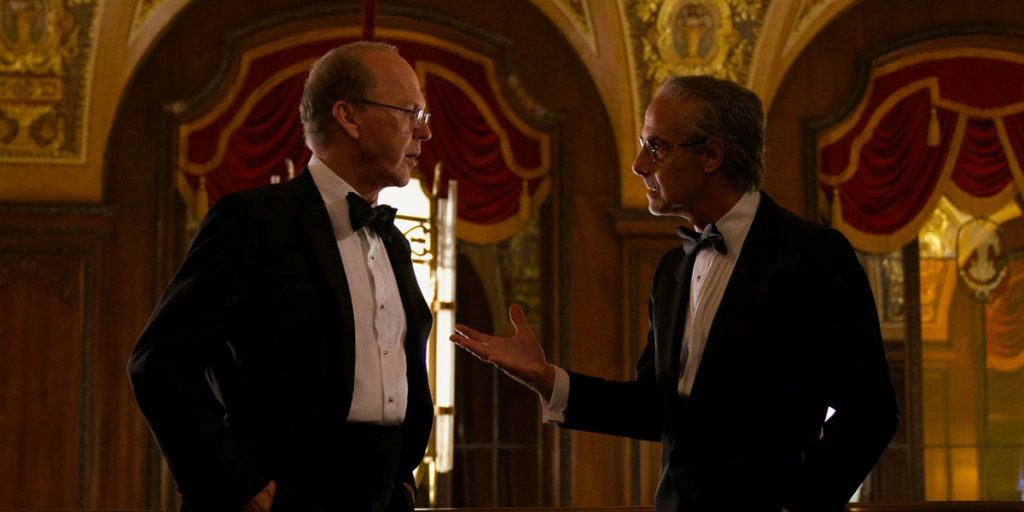Worth certainly isn’t an easy watch, but its precisely crafted screenplay asks the audience crucial questions regarding life, loss and the value of humanity.
‘Worth’ is a word that’s spoken more than once in Sara Colangelo’s riveting drama about the financial fallout of the 9/11 attacks, as it navigates the blurred areas of American law regarding the monetary value of a lost life. The film forces its audience to confront the ethics and morality behind America’s unequal treatment of these victims, through the factor of financial compensation. It’s obviously daunting and harrowing at times, but the driving conflict between the central characters creates a surprisingly compelling story which raises some truly original and important questions regarding the philosophy of the law.
The film follows real-life lawyer Ken Feinberg (Michael Keaton) as he navigates the ambiguity of America’s legal landscape by coming face to face with the friends and families of those who lost their lives in the 9/11 attacks in 2001. Feinberg is tasked with creating a mathematical algorithm, designed to allocate a fixed amount of financial compensation to the victims’ next of kin. Naturally, Ken encounters criticism and resistance to his system – namely Charles Wolf (Stanley Tucci) and his ‘Fix the Fund’ organisation, a charity group for the families of victims which protested for a change to Feinberg’s formula. Worth follows the conflict between these two men, how they grow to learn from each other, and what this means for America’s legal system in the future. Despite a fairly bleak and hopeless narrative, the film manages to form an engrossing story thanks to its layered and thoughtful script, and the standout performances from these powerful actors.
The most impressive part of Worth is the way that it tackles such serious events and important concepts with a progessive, respectful lens that never feels exploitative or superficial. The film opens with an extended interview scene concerning the mother of a young boy who lost his life during the attacks – and Colangelo’s camera never wavers from the mother’s face as she asks Feinberg how he plans to calculate the worth of her son’s life. It’s small directorial choices like this that place the victims at the heart of the story and make it feel so important; the audience is forced into this world and able to connect with every single character thanks to such a delicately considered screenplay. It’s thought-provoking, insightful and truly challenging to watch in a way that most dramas aren’t able to achieve – all thanks to its fleshed out characters, touching narrative and developed philosophies.

It goes without saying that Keaton and Tucci are perfect here, and their chemistry on screen is an electrifying experience. They represent opposite ends of American politics, with Feinberg devoting his life to the development of the algorithm, and Charles Wolf instead focusing on the individuals affected by the event. They have almost nothing in common, but they manage to find solace and truth in each other’s ideologies and learn how to compromise their own pride to focus on those affected by their work. Their characters are expertly written, and it’s clear that writer Max Borenstein values the authenticity and integrity of his characters above all else – which is vital for this story in particular.
The philosophical ideas and moral questions that Worth raises are also truly thoughtful and often go way beyond the surface level. The film doesn’t just question how we value humanity, but touches on previously established concepts of self and personhood – what exactly does it mean to be human? Is it fair to value one life over another based on its purpose in society? At what point in such an authoritarian legal system do human beings become nothing more than numbers on a page? These are all important questions which Worth addresses, using empathetic and developed characters to explore the answers in a practical way. There are plenty of films out there that ask similar questions, but not many that strive so hard to provide its audience with a considerate answer.
Unfortunately, there are moments when Worth starts to feel formulaic and repetitive in its approach to this story. The majority of the film follows Feinberg’s development of his algorithm, and whilst this offers plenty of opportunities for social commentary and thoughtful filmmaking, it does sometimes grow tedious and caught up in its own technical jargon. It would certainly be difficult to find yourself wrapped up in this story without a prior understanding of 9/11 attacks or the American legal system, as the film often relies on the intricacies of the law to advance its story. That’s not to say the story isn’t interesting or exciting, because it certainly is. The story is accessible and easy to follow thanks to Colangelo’s prioritisation of her characters, but the technicalities of the narrative might not interest some.
But ultimately, there’s something for everybody in Worth. Whether you’re looking for an informative story, an emotional drama or a poignant commentary on society, Colangelo’s captivating piece has it all. It’s as much about the emotional subjectivity of grief as it is about the objectivity of law and order, but Borenstein’s script molds these ideas together in such an interesting and inventive way. It might not be as consistently engaging as it could have been, and it does sometimes sacrifice its creative storytelling for a more conventional structure, but the moving performances and thoughtful ideologies embedded within these unique characters are more than enough to warrant giving Worth a shot.
Worth is now available to watch on Netflix.

